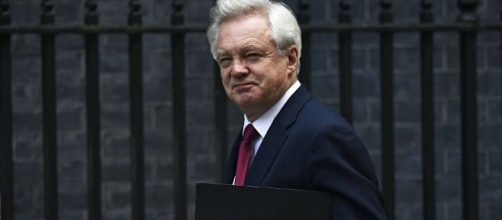David Davis MP, the minister for the Department for Exiting the European Union (DExEU), has laid out the government’s plans in regards to the Great Repeal Bill. Which will allow the UK to replace any EU law enshrined in UK law upon the exiting the EU. Labour raised concerns that it was being done without proper parliamentary scrutiny.
This is the biggest legislative overhaul the UK has ever undertaken but What does this mean for lawmakers?
What will the bill do?
Firstly, Davis said that it would allow the UK parliament along with Scottish, Welsh and Norther Irish administrations to scrap or amend any EU law.
But it would also mean the end the jurisdiction of the European Court of Justice. The bill would also repeal the European Communities Act, that states that EU law is supreme to UK law, transpose current EU laws into UK law and come into force the day the UK leaves the EU. A Lords committee stated that this represents a ‘unique challenge’ for the UK lawmakers.
The only issue is that 1000s of laws could be changed without parliamentary scrutiny, the clause dubbed the ‘Henry Viii’ powers by those against it, was placed with the idea that the government can change/remove laws swiftly to create a smooth exit. However, this also represents a will to avoid a democratic process of parliament. Davis has previously stated that there would be a time limit on this clause and that major laws would be put to parliament.
But this requires the government to decide what laws are major or not.
The task ahead
The government has a difficult task within the next 2 years when negotiating with the EU and deciding what laws they will keep, replace or scrap. They should aim to ensure workers across the country are secure, EU national’s rights should be guaranteed and make sure climate and environmental models are follow. They need to make sure that the laws they do decide to keep or replace are balanced enough to make trade deals easier with the EU.
Of course, with the ‘Henry VIII’ clause there is significant danger that it could lead to ill-thought decisions on what laws should be removed or replaced. Davis also rejected claims that the UK were ‘blackmailing’ the EU of security after it was revealed that Theresa May’s letter suggested that the UK and EU’s cooperation in fighting crime and terror were at risk, if there was no deal after 2 years.
These remarks also come not long after the London attack, that saw a police officer and 4 others subsequently killed.
A long winding road
There is a long road ahead for the UK and this will no doubt put a lot of aspects in doubt, with concerns over worker rights, climate change and environmental measures particularly the main areas of concern with a lot of the public.
The government needs to go through parliamentary scrutiny as much as possible, if not all the time otherwise they fall risk of contradicting themselves over campaigns that claimed Britain will get its sovereignty back. But there is significant concern over May’s actions already, after she has tried to bypass parliament once, and the serious election fraud hanging over the Conservative’s head.

